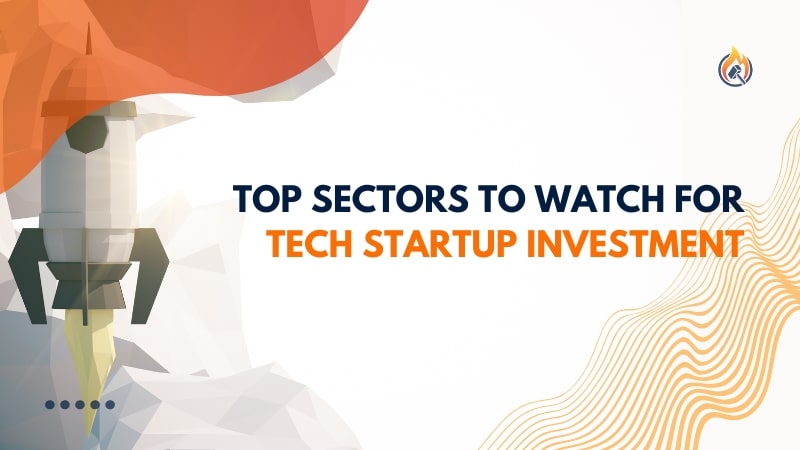Investment opportunities in technology startups have emerged as one of the most sought-after avenues for investors seeking high returns and meaningful impact.
With the digital age in full swing, startups are no longer just fledgling ideas born in garages, they are serious, scalable businesses solving real-world problems with cutting-edge solutions. These companies are not only shaping the way we live and work, but they are also driving the next wave of economic growth on a global scale.
From the moment a tech startup launches, it holds the potential to revolutionize industries ranging from healthcare and education to finance and entertainment. Investors who recognize this potential early often find themselves at the forefront of innovation, riding the wave of growth before it reaches mainstream adoption.
Moreover, the allure isn’t solely financial. Many investors are drawn to the opportunity to support visionary founders, disruptive technologies, and transformative missions that align with their values.
In today’s fast-paced and increasingly digital world, understanding where and how to find the most promising investment opportunities in technology startups is essential. Whether you’re a seasoned investor looking to diversify your portfolio or a curious newcomer eager to explore emerging trends, the tech startup ecosystem offers a wealth of possibilities, along with its fair share of risks.
The Rise of Technology Startups

Over the last two decades, technology has fundamentally transformed how we communicate, work, and live. From the rise of smartphones to artificial intelligence (AI) and blockchain, innovation has become the driving force behind economic growth.
Not surprisingly, this transformation has led to a surge in technology startups aiming to solve complex problems through scalable solutions. Consequently, investment opportunities in technology startups have become increasingly appealing.
These startups often operate in fast-growing markets and use disruptive models that challenge traditional business practices. Investors recognize the potential to achieve exponential returns if they back the right venture early.
Why Invest in Technology Startups?
Investing in technology startups offers some of the highest return potential in today’s market. Companies like Uber, Airbnb, and Zoom have demonstrated that disruptive ideas can grow rapidly and deliver extraordinary profits to early backers.
Moreover, tech startups often operate with lower overhead and benefit from digital scalability, allowing them to expand quickly and reach global markets with minimal upfront costs.
Another key advantage is portfolio diversification. While many investors allocate capital to traditional sectors such as Real Estate Investment Canada, tech startups provide a high-growth alternative that can help balance risk, especially during periods of economic uncertainty.
With the rise of crowdfunding platforms and angel investor networks, access to startup investment has become more inclusive, opening the door for individuals to engage in innovation-driven ventures.
Ultimately, investing in startups is about more than financial gain, it’s about contributing to the future. These companies are frequently at the forefront of solving global challenges, including healthcare, sustainability, and digital security.
By supporting technology startups, investors not only diversify their assets but also play a role in advancing groundbreaking solutions that can transform society.
Key Sectors to Watch the investment opportunities in technology startups
Although technology as a whole is a fertile ground for investments, several sub-sectors stand out as particularly promising in 2025 and beyond. Let’s explore a few areas where investment opportunities in technology startups are thriving.

1 – Artificial Intelligence and Machine Learning
AI continues to redefine what’s possible in fields ranging from healthcare to finance. Startups working on AI-driven analytics, natural language processing, and autonomous systems are attracting substantial venture capital. As businesses seek to automate and personalize services, the demand for intelligent technologies is skyrocketing.
Startups in this field often deliver software-as-a-service (SaaS) models, providing scalable solutions to global clients. Because AI tools improve over time with more data, early investments in this sector can mature into long-term, profitable ventures.
2 – Fintech and Decentralized Finance (DeFi)
The fintech space has exploded in recent years, fueled by demand for convenient digital banking, payment processing, and decentralized finance platforms. Startups that offer innovative financial solutions, such as mobile payment systems, peer-to-peer lending, and blockchain-based services, are disrupting how individuals and businesses manage money.
In particular, DeFi startups aim to democratize access to financial instruments, making them attractive to socially conscious investors. As global finance becomes increasingly digital, the room for disruptive newcomers continues to grow.
3 – HealthTech and Biotech Innovation
The COVID-19 pandemic highlighted the critical role of technology in healthcare. Since then, HealthTech and Biotech startups have attracted considerable funding for projects ranging from telemedicine platforms to genetic engineering.
Startups working on AI diagnostics, wearable health devices, and personalized medicine offer some of the most impactful investment opportunities in technology startups. They not only promise financial returns but also contribute to public well-being, making them a compelling choice for impact investors.
How to Evaluate Investment Opportunities in Technology Startups?
While the potential for gains is high, investing in early-stage tech companies carries inherent risk. Therefore, a thorough evaluation process is essential. Here are some key factors to consider:
- Founding Team: A strong, visionary, and experienced founding team is crucial. Investors should assess not only the technical abilities of the team but also their entrepreneurial mindset, industry knowledge, and adaptability.
- Market Potential: The startup should be addressing a significant and scalable market. A great product in a small market may struggle to deliver large returns. Conversely, even a modestly innovative product in a large, untapped market can yield impressive outcomes.
- Product or Service Differentiation: Look for startups with a clear competitive advantage, whether it’s proprietary technology, unique features, or intellectual property. Differentiation helps protect against competitors and adds long-term value.
- Business Model: Understanding how the startup intends to generate revenue is essential. Does the model support scalability? Are there recurring revenue streams? SaaS, subscription-based models, and network-driven platforms often offer attractive prospects for growth.
- Traction and Metrics: Whenever possible, evaluate the startup’s traction. This includes user growth, revenue trends, retention rates, and customer acquisition costs. These metrics can indicate whether the product is meeting a real need.
- Strategies for Investing in Startups: There are several ways to get involved in investment opportunities in technology startups, depending on your experience, risk tolerance, and available capital.
Conclusion
In a world increasingly shaped by innovation and digital transformation, investment opportunities in technology startups represent not only a financial prospect but also a chance to participate in something bigger, something visionary.
These ventures are building the tools, platforms, and systems that will define how we live, work, and connect in the future. Whether it’s through AI-powered healthcare solutions, blockchain-driven finance, or climate tech that combats environmental challenges, startups are leading the charge toward a smarter, more efficient world.
Of course, every opportunity comes with risk. The volatile nature of early-stage businesses demands careful evaluation, strategic planning, and a willingness to play the long game.
However, with high risk comes the possibility of high reward, both financially and socially. By investing in startups, you support bold ideas, talented founders, and innovation that can truly make a difference. This impact-driven approach adds meaning to your investment strategy while positioning you at the forefront of technological evolution.
As we move forward into an era defined by disruption and possibility, those who recognize and seize investment opportunities in technology startups today may be the ones who shape the future economy.


